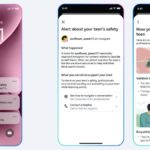Google has intensified its security efforts on the Google Play Store, blocking 2.36 million policy-violating apps in 2024 and banning 158,000 developer accounts linked to harmful software.
This is part of Google’s ongoing push to protect Android users from malware, fraud, and privacy risks through AI-powered threat detection and stricter security policies.
How Google is Strengthening Play Store Security
Google Play has always been a massive ecosystem, with billions of users downloading apps daily. However, this popularity also attracts bad actors who create malicious apps designed to steal user data, install malware, or trick users into fraudulent transactions.
To combat these threats, Google has implemented a multi-layered security strategy focused on AI-driven detection, developer accountability, and real-time scanning.
Here’s how Google has enhanced security:
1. AI-Assisted Threat Detection
- Over 92% of app reviews now involve AI assistance, allowing faster and more accurate detection of harmful apps.
- Google’s AI can identify malware patterns, phishing tactics, and data-harvesting behaviors before an app goes live.
2. Real-Time App Scanning
- Google Play Protect scans 200 billion apps daily to catch newly emerging threats.
- The system also detects apps that change their behavior post-installation, a common trick used by malware.
3. Tighter Data Privacy Controls
- More than 1.3 million apps were restricted from excessive data collection to prevent privacy violations.
- Google now requires apps to offer clear data deletion options, ensuring users have control over their personal information.
4. Play Integrity API Expansion
- This tool helps developers detect tampered apps, bot-driven fraud, and unauthorized modifications.
- Apps using Play Integrity API saw an 80% drop in fraudulent activities in 2024.
5. Fighting Scams and Financial Fraud
- Google launched fraud prevention pilots in nine countries, blocking 36 million risky installations from over 200,000 suspicious apps.
- New protections prevent Play Protect from being disabled during social engineering attacks, making it harder for scammers to trick users into turning off security features.
How Android Users Can Stay Safe
Even with Google’s security improvements, users should take precautions to avoid falling victim to cyber threats. Here are some best practices:
✔ Keep Play Protect enabled for automatic real-time malware detection.
✔ Avoid sideloading apps from unverified sources outside the Play Store.
✔ Check app permissions and revoke unnecessary access to sensitive data.
✔ Regularly update Android devices to stay protected against the latest security vulnerabilities.
✔ Be cautious of phishing links and suspicious emails that trick users into downloading fake apps.
Final Thoughts
Google’s 2024 security crackdown has made the Google Play Store significantly safer, but cybercriminals are always evolving their tactics.
The combination of AI-driven detection, developer accountability, and user awareness will be crucial in keeping the Android ecosystem secure.
As the battle against malware and fraud continues, Google’s multi-layered security approach ensures that users can download apps with greater confidence—but staying informed and cautious remains the best defense.












Leave a comment